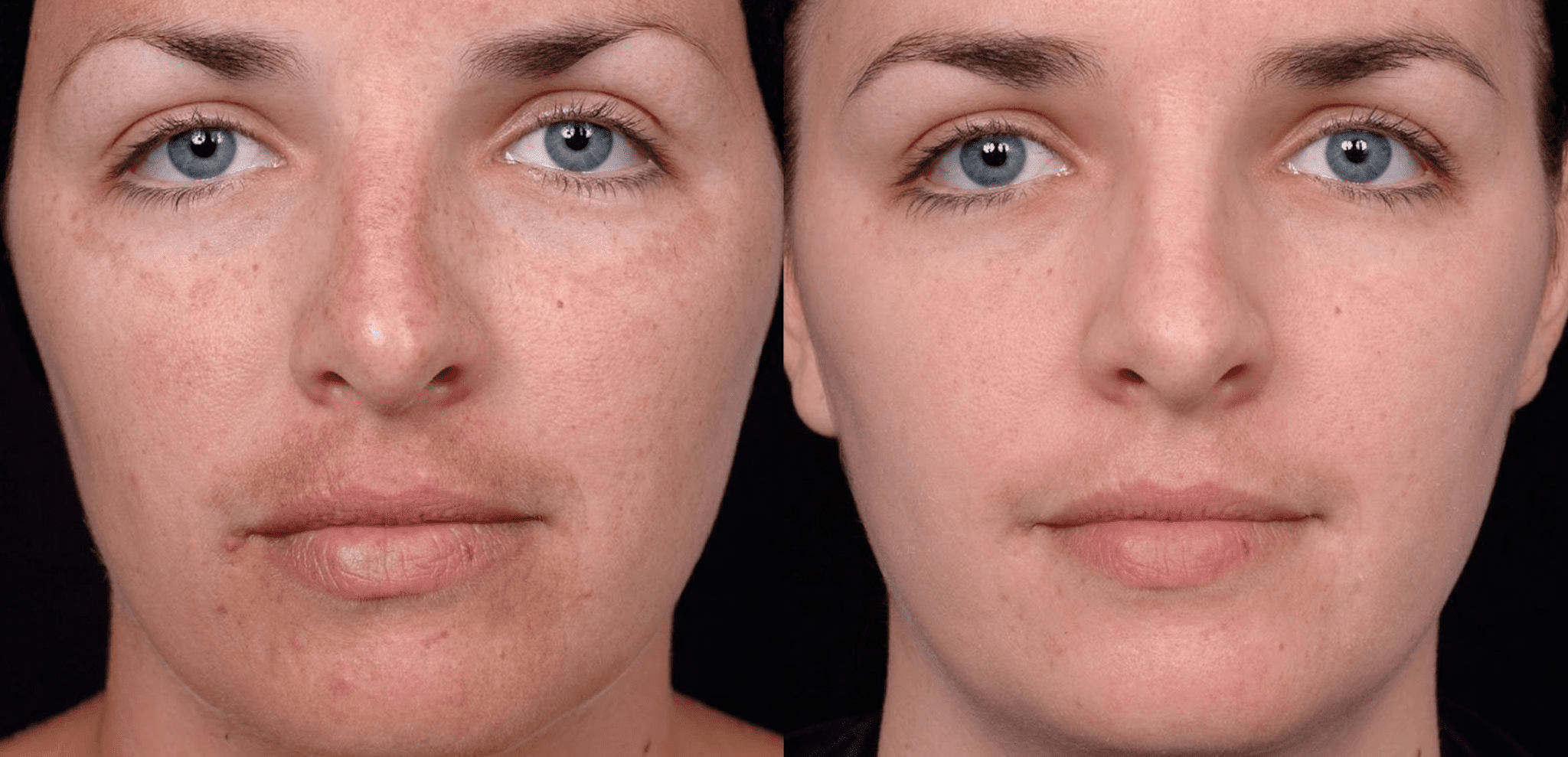Chemical Peel
A chemical peeling treatment, also known as chemexfoliation or derma peeling, applies a chemical-based solution to enhance the appearance of your skin, resulting in damage to skin layers. Over time, the top skin layers begin to peel away, revealing youthful-looking skin. The new-born skin typically has a more even skin tone, a smoother texture, and fewer lines and wrinkles.
Chemical peeling products come in many different varieties, including Alpha-hydroxy Acid (AHA), Beta Hydroxy Acid (BHA), and Trichloroacetic Acid (TCA). Your doctor will talk to you about your alternatives.
We are now providing:
Alpha-hydroxy Acid (AHA)
- Mandelic Acid
Beta Hydroxy Acid (BHA)
- Salicylic Acid+ Azelaic Acid
Learn More about our:
Other Medical Aesthetics Treatments

Patient with Mandelic Acid treatment, before and after. (Image source: Exceptional Dermatology Care)
What skin conditions does a chemical peel treat?
Chemical peels are used to treat certain skin conditions or to improve the tone and texture of your skin in order to enhance your overall appearance.
Your face, neck, or hands are the most typical areas for chemical peels. They can reduce or enhance:
- Fine lines around the lips or beneath the eyes, as well as wrinkles from aging, hereditary factors, and sun damage.
- Certain kinds of acne.
- Minor scarring.
- Sun spots, age spots, liver spots, freckles, uneven skin tone.
- Rough, scaly, and dull-looking skin.
- Dark patches (melasma) caused by pregnancy or birth control medications.
The level or depth of your treatment will be decided along with your doctor depending on the goals and the condition of your skin.
Chemical peels don't work well on sags, bulges, deep scars, deep facial lines, or more severe wrinkles. Other cosmetic procedures, such as botulinum toxin, or dermal filler, would be preferable if these were your main concerns. Consultation with a doctor can help determine the most appropriate treatment for your condition.
Is a chemical peel good for all skin types?
In general, all skin types can benefit from superficial peels. However, you have a higher risk of experiencing a darkening of your skin after treatment if you have a darker skin tone. Post-inflammatory hyperpigmentation is the medical term for this condition. In order to reduce the chance of hyperpigmentation, you may consult your doctor about alternative procedures.
Additionally, chemical peeling might not be advised if you:
- Have a background of unusual skin scars.
- Have dark scars.
- Experiencing skin issues or taking drugs that can irritate your skin.
- Cannot avoid the light during the healing process.
Get In Touch
For any enquiry, please call +852 3420 6622, Whatsapp +852 5228 0810, or info@marinamedical.hk



